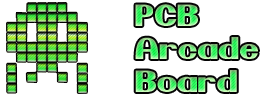The EU has said the UK must apply new rules for digital copyright - but a bad law is made worse in the process.
The Directive says that devices that circumvent copy protection will be illegal to sell and own. Recording studios rely on such devices to make, manipulate and copy the music they make: there's no exemption for them. The Directive says that it is illegal to copy protected material in general, but there are exemptions for school teachers, broadcasters, scientific researchers and so on. All well and good, but the proposed UK enactment of this says that for each exemption, a request to the Secretary of State must be made. In writing. Every time. Which seems a bit steep if you're just putting together a tape for Thursday's music class, or making a playlist of MP3s for tonight's drivetime show on Radio Yokel. The Secretary's going to be getting an awful lot of mail.All of the above are examples of what might be most kindly thought of as bureaucratic ineptitude, a collection of oversights and fuzzy thinking. OK, if they're not fixed you can go to prison for no good reason, but laws are like that. It gets scarier when you realise what existing, basic rights will be taken away en passant and without comment.Take the right to create software compatible with someone else's. At the moment, the right to do this is explicit -- the CDPA says you can reverse engineer other people's code to help. But if that code includes protection mechanisms, it's now explicitly illegal. If you have your data in one company's software and you want to read it from another, that may no longer be possible -- and if the first company is keen on annual licence fees, then you may end up having to pay time and again just to keep access to your own data. Then there's copyright itself. As it stands, after some time the copyright on a piece expires and it enters the public domain. But if the work is protected by some technical mechanism, then there's no limit to the time that mechanism can be in operation -- effectively sealing the work away forever. It would be illegal to try and extract the -- by now public domain -- work, even though this removal of protection is at the heart of almost all intellectual property law.By any measure, this is a bad piece of legislation.
http://www.computercops.biz/modules.php ... e&sid=1399
UK: equivalent of the DMCA explained
Moderator: Zep
1 post • Page 1 of 1
1 post • Page 1 of 1
Who is online
Users browsing this forum: No registered users and 51 guests


